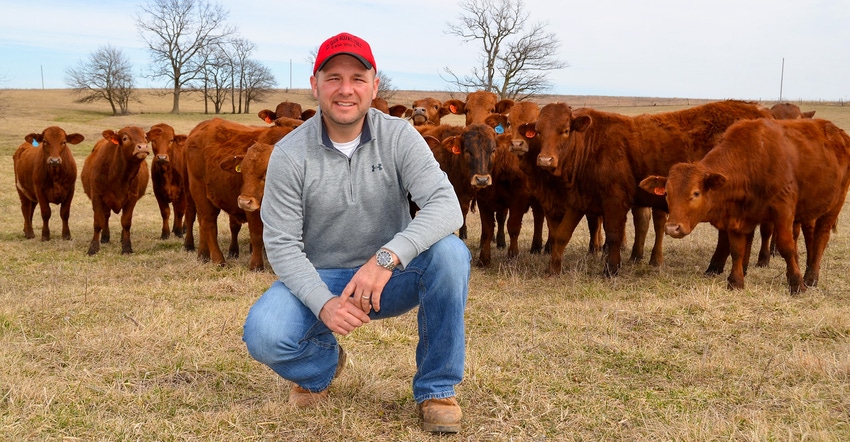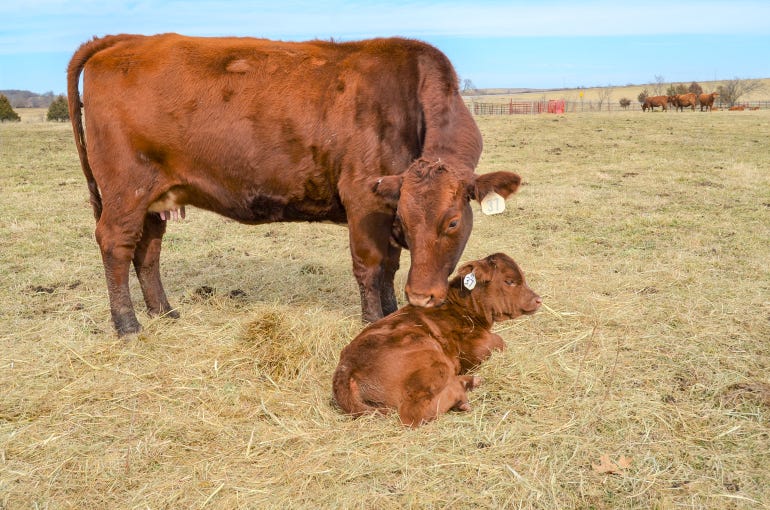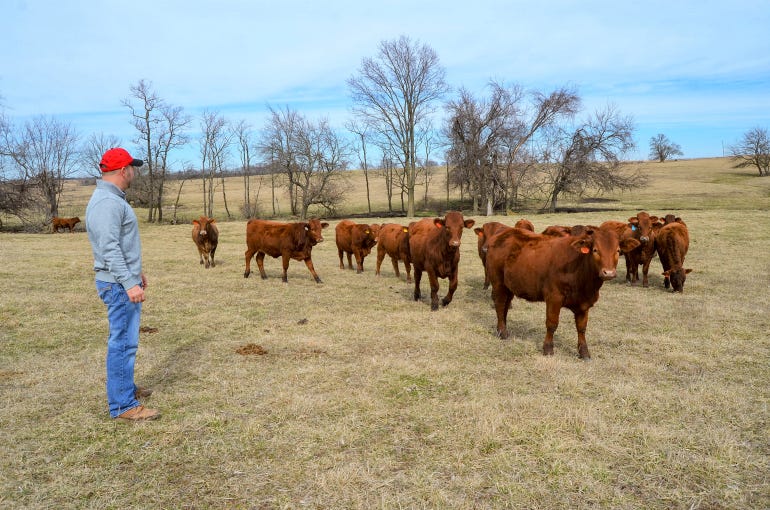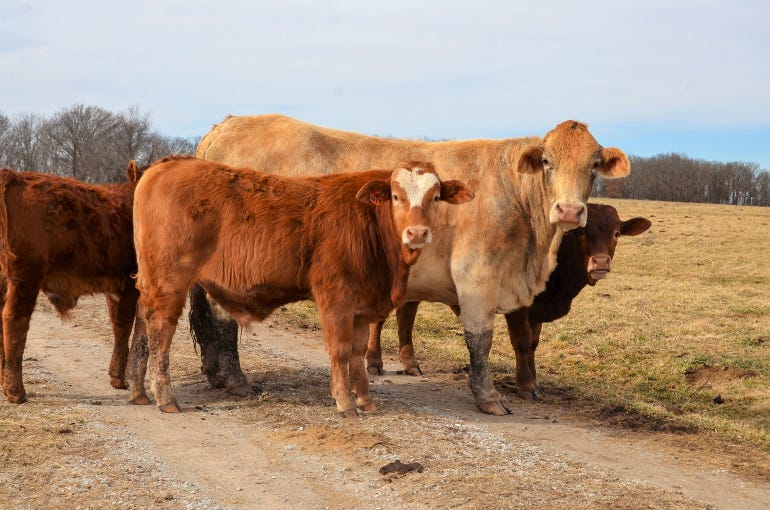
Craig Johnson can either be found in the pulpit or in the pasture. This Cedar County, Mo., cattle rancher also is a small-town preacher.
Get him talking and it is almost as though he forgets where one role begins and the other ends as he shares his love of cattle ranching. It is a passion that reaches not only cattle producers in southwest Missouri, but also those raising the Beefmaster breed in other parts of the world.
The journey for St. Clair Beefmasters started in 1975 when Johnson’s father, Bill Bishop, began visiting the Lasater Ranch in Colorado, which is known as the home of the foundation herd of the Beefmaster breed. There he learned about the six essentials of the breed — fertility, disposition, confirmation, milk production, weight and hardiness.
Today, Johnson carries on the family tradition. He along with his wife, Karen, and four children took over the helm of St. Clair Beefmasters when his father passed away.
Beef cattle mix
For Johnson, his cattle offer a unique genetic mix. “So many breeders want to stay with straight Angus,” he says, “but you lose your hybrid vigor and heterosis.” Johnson has a 50% Brahman, 25% Shorthorn and 25% Hereford cattle mix. “The cattle get their hardiness from Herefords and milk production from Shorthorns,” he explains.
These cows come into the herd and continue producing year in and year out, Johnson adds. For instance, he purchased nine cows from Lasater Ranch in 2004, and seven of them remain in the 250-cow herd today.

MAMA COW MOMENT: A young calf gets some attention from its mom. Craig Johnson, a Beefmaster breeder, says the cross between a Hereford and a Shorthorn is ideal for creating a nurturing cow.

Johnson contends that Beefmaster is adaptable to any environment. His own herd is proof as he ships cattle north to the cold winters of Minnesota and south to warm summers of Central America.
Last year, he sent 30 heifers to Panama. However, he’s also shipped seedstock to Thailand, Ecuador and Mexico. His export prowess earned him the title of Missouri’s Exporter of the Year in 2019 by the Missouri Department of Agriculture.
Finding a foreign market
Johnson’s export efforts started when a trade mission visited his farm outside of El Dorado, Mo. “They were a group from Thailand, and the Missouri Department of Agriculture was giving them a tour of beef producers in the state,” Johnson recalls. “It is about developing relationships with these individuals. They really want to know where their beef comes from.”
“Trade missions are one of the best tools for Missouri companies, especially cattle producers who want to export and expand their sales overseas,” says Brenda Verslues, program manager for the Missouri Domestic and International Marketing Program. “This opportunity is an easy way to find companies, distributors or single buyers in other countries.”

READY FOR TRANSPORT: Craig Johnson looks over a set of young heifers. He took over St. Clair Beefmasters after his father passed away. Today, he develops export markets where he ships bulls, heifers and semen.

Verslues says Missouri cattle producers can use this service and take advantage of the network and expertise of the team leading the trade mission. These activities can maximize their experience by providing translation services, logistics, marketing research and follow-up support after the event.
She says the Missouri Department of Agriculture’s export program provides market diversification to help sustain growth and reduce the vulnerability in domestic commodity prices.
Beef demand increased
After the 2012 drought, Johnson saw demand for his Beefmaster cattle increase both domestically and internationally. “Farmers were trying to rebuild their cow herds,” he says. “And the Beefmaster offers some heat tolerance that you can’t find with other cattle.”
He does not actively seek out export buyers. Most sales come by word-of-mouth. “Just like in the U.S., Panama has an amazing word-of-mouth referral from one farmer to another,” Johnson says. In 2018, he exported 10 heifers to the region. The number tripled the following year.
His motto for success is “keep quality, sell quality.” “I only sell the type of animal I would buy myself,” Johnson adds.

PUT ON THE POUNDS: Beefmaster calves put on pounds quickly. It is one reason many foreign buyers are looking at the breed and buying from Missouri.

He does not just export live animals; he also exports semen. But that proves difficult with current government regulations. The semen must be certified. It then is frozen.
Breeders purchase Beefmaster bulls because of their weaning weights. “Their offspring are easy to calve, but they get up to speed quickly,” Johnson notes. “The calves average about 100 to 150 pounds more at weaning.” St. Clair Beefmasters sells about 50 bulls off the farm every year.
In 2019, Missouri exported more than 300,000 head of live cattle to more than 37 countries.
Johnson says he’s fortunate to be able to have two passions that run parallel to one another — a love of God and God’s creatures.
About the Author(s)
You May Also Like






